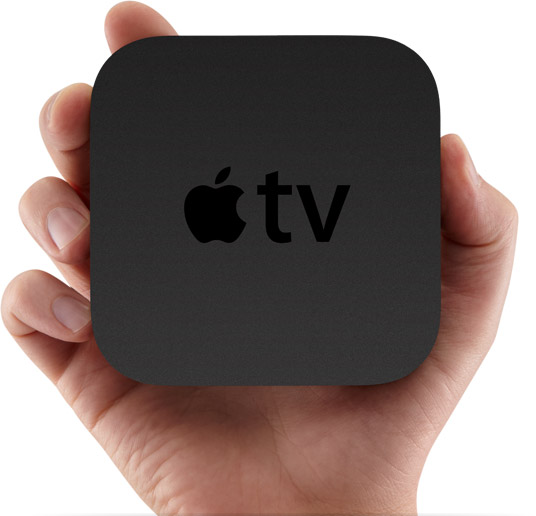Ranking the digital living room barbarians: Netflix rules; Apple, Google others likely to struggle

Apple is trying again with Apple TV in an attempt to be the center of the digital living room. The concept isn't new since Google, Microsoft, Netflix, Amazon and others are also targeting your living room. Of that group, Netflix is the only real threat to the incumbents.

And it doesn't stand a chance. Welcome to the conundrum that's the digital living room. Apple tried to portray Apple TV as something other than a set-top box, but it lacks apps. Therefore, it's a glorified Roku box. Meanwhile, Apple lacks the content. On the TV front, only Fox and ABC are signed up.
The clear winner in this Apple TV gig is Netflix. Jobs touted "the best implementation of Netflix," but that's not a big deal. The real deal is that Netflix CEO Reed Hastings and his company have navigated the digital entertainment landscape better than anyone. Netflix's ability to navigate the turbulent entertainment business is absolutely brilliant.
Consider the following:
- Netflix has the content through savvy dealmaking;
- Netflix has the distribution to cut deals with Hollywood;
- Netflix has avoided the hardware quagmire by embedding itself everywhere;
- And the company is already in your living room via multiple boxes.
Here's a list of Netflix distribution partners:
- Apple TV;
- Microsoft’s Xbox 360;
- Sony’s Playstation 3;
- Nintendo’s Wii;
- Internet connected TVs (most of them);
- Blu-ray players;
- TiVo;
- Roku digital players.
- Apps on the mobile front.
You pick a screen or consumer electronics device and you're likely to find Netflix. And it's all you can eat for a subscription. The real genius with Netflix: The company isn't a huge threat to cable or any of the incumbents. If anything Netflix is more HBO killer than Comcast killer.
So with that argument out of the way, it's clear that Netflix is my No. 1 pick to dominate the digital living room. All the pieces are there and at some point a company like Apple or Amazon is going to have to pay a pretty price for Netflix.
Related: Apple, Google TV: Does Pay as You Go Make Dollars and Sense?
No. 2: Microsoft
Microsoft is in your living room more than you'd think. If you have Verizon FiOS, Microsoft is the operating system on the set-top box. And if you have an Xbox, you know that Microsoft is in your entertainment center (right). In fact, the Xbox community and Netflix streaming is a nice perk. And at this point, Microsoft isn't a huge threat to the content companies so Hollywood will play ball. Another point: Via PCs, home network servers and other gear, Microsoft has as many living room touchpoints as anyone.No. 3: Apple
No. 4: Amazon
Amazon can rent you movies and sell you content in your living room, but the e-commerce company is largely a wild-card. Amazon has its movie rental service - $1 cheaper than Apple TV in most cases - and counts Panasonic, Samsung and Sony as partners. Amazon and Netflix would fit together very well and the companies have complementary expertise in e-commerce and distribution.No. 5: Google
Google has the same problem as Apple: Content companies are wary of the search giant, but will deal with the company just so Jobs doesn't control their fate. Google is talking TV search, Android set-top boxes and movie rentals on YouTube. Put it all together and Google should have enough opportunities to prove it's a friend to the content creators. If that plays out, Google may be in your living room at some point. At this juncture, however, Google TV remains largely on the whiteboard.Related: Google, Apple, Netflix are among those trying to shape 21st Century TV
And the rest of the rest...
The aforementioned companies were picked as digital living room players largely because they play on multiple fronts such as hardware, software and commerce. Here are a few other companies that aren't content distributors, but have a lot of hooks into the digital living room.
Cisco
Cisco has your set-top box via Scientific Atlanta, your router with Linksys and video tools such as the Flip camera. Toss in some living room telepresence and Cisco is a player. Cisco, however, falls into a bit of a different category that the likes of Google and Apple.Motorola
Motorola's story is similar to Cisco. Despite all the hubbub around boxes in your living room, the set-top box is still the focus. Motorola has the set-top box - split with Cisco - and has Android devices it can also deploy.The incumbents
Anyone notice how Samsung is talking up apps? How about those cable companies talking about TV Everywhere on the Internet? How about those TV companies owning Hulu? Comcast is pairing distribution and content via the NBC Universal purchase. It's quite possible that the digital barbarians only made established players perform better. Despite a lot of thought, I still haven't found the economics that would encourage me to cut the cable cord. On the bright side, Apple, Microsoft, Google and the gang will keep trying.Someday, they may get the digital living room right.